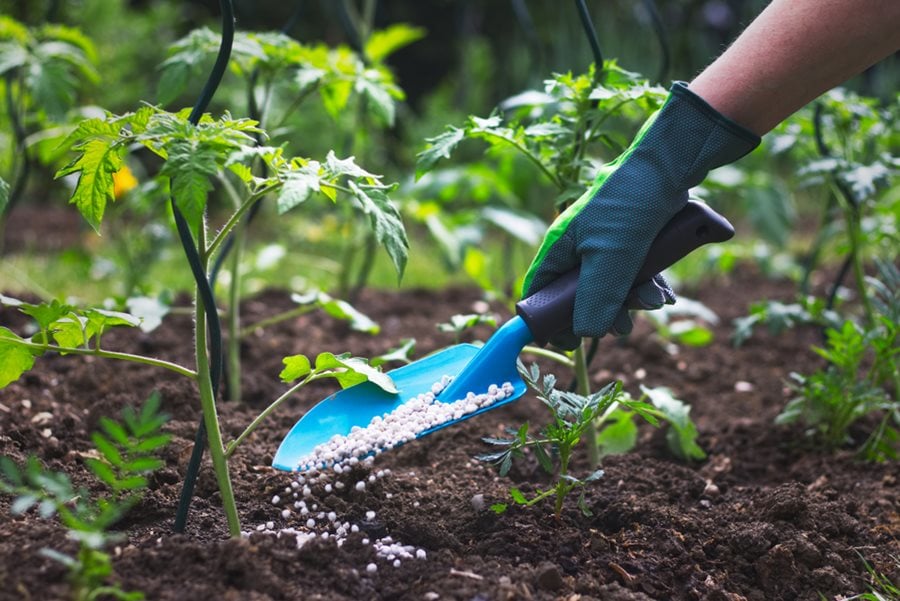Organic soils and fertilizers have gained significant attention in recent years as people become more conscious of the impact their choices have on the environment. With a growing number of individuals embracing organic farming methods, the science behind organically cultivated soils and fertilizers has emerged as a fascinating field of study. By delving into the secrets of organic soils and fertilizers, we can uncover the intricate web of interactions that occur beneath our feet, and understand how these practices contribute to sustainable and nourishing crop production.
At its core, organic farming seeks to work in harmony with nature, harnessing the power of biological processes and natural resources to nourish the soil and sustain plant growth. Organic soils, also known as living soils, are brimming with life, housing a vibrant community of organisms such as beneficial bacteria, fungi, earthworms, and insects. These creatures work together in a delicate dance, breaking down organic matter, decomposing plant residues, and releasing essential nutrients in forms that plants can readily absorb.
In contrast to conventional farming practices that rely heavily on synthetic fertilizers, organic fertilizers are derived from natural sources such as compost, manure, and plant-based materials. These organic inputs not only provide essential nutrients to plants but also contribute to the overall health and vitality of the soil ecosystem. The slow-release nature of organic fertilizers ensures that nutrients are supplied to plants in a controlled manner, reducing the risk of nutrient leaching and minimizing environmental pollution.
By nurturing the intricate relationship between soil, microorganisms, and plants, organic soils and fertilizers create a virtuous cycle that supports long-term soil health and crop productivity. In the following sections, we will delve deeper into the secrets of organic soils and fertilizers, exploring the principles that guide their use, the benefits they offer, and the sustainable practices that can help us unlock their full potential. Join us on this journey as we uncover the wonders that lie beneath our feet, and discover how organic farming practices can pave the way towards a healthier, more sustainable future.
Understanding Organic Soils
In the world of agriculture, organic soils play a vital role in promoting healthy plant growth and sustainable farming practices. These soils are enriched with organic matter, which is derived from plant and animal sources. Organic matter provides essential nutrients and improves soil structure, allowing for better drainage and root development.
One of the key benefits of organic soils is their ability to retain moisture. The organic matter acts like a sponge, holding onto water and gradually releasing it to the plants as needed. This improves water efficiency and reduces the risk of drought stress. Additionally, the increased water-holding capacity of organic soils helps prevent soil erosion and nutrient runoff, which are major concerns in conventional farming.
Another advantage of organic soils is their ability to support a diverse and thriving ecosystem. The organic matter serves as a food source for beneficial microbes, earthworms, and other soil organisms. These organisms break down the organic matter, releasing nutrients that can be readily absorbed by plants. They also help to suppress harmful pests and diseases, reducing the need for chemical pesticides.
By utilizing organic soils, farmers can minimize their reliance on synthetic fertilizers. Organic fertilizers, such as compost or manure, are derived from natural sources and provide a slow and steady release of nutrients. This reduces the risk of nutrient leaching and groundwater pollution, while also improving soil fertility over time.
In conclusion, understanding the role of organic soils is crucial for sustainable agriculture. These soils offer numerous benefits, including improved water retention, enhanced soil structure, and the promotion of a thriving ecosystem. By harnessing the power of organic matter and adopting organic fertilizers, farmers can cultivate healthier crops while minimizing environmental impact.
late summer vegetable planting zone 6
Exploring the Benefits of Organic Fertilizers
In the world of agriculture, organic fertilizers have garnered significant attention for their numerous benefits. These natural substances have revolutionized the way we nurture and enrich our soils, leading to healthier crops and a more sustainable future. Let’s delve into some of the key advantages of using organic fertilizers.
Improved Soil Health: Organic fertilizers contribute to the overall well-being of the soil by enhancing its structure, fertility, and nutrient-holding capacity. They introduce essential organic matter that stimulates microbial activity, fostering a rich and vibrant soil ecosystem. This, in turn, promotes better nutrient absorption by plants, resulting in improved crop yields over time.
Sustainable Nutrient Release: Unlike synthetic or chemical fertilizers, organic fertilizers release nutrients slowly and steadily, ensuring a balanced and sustained supply for plants. This gradual nutrient release aligns with the natural growth cycle, preventing excessive nutrient leaching into groundwater. Additionally, organic fertilizers minimize the risk of nutrient burn, which can occur when plants receive an overload of nutrients at once.
Environmental Benefits: Organic fertilizers are derived from natural sources such as compost, manure, bone meal, and seaweed, making them much more environmentally friendly than their synthetic counterparts. By avoiding the use of harmful chemicals, organic fertilizers help safeguard the health of ecosystems, protect the quality of water resources, and reduce the risk of soil degradation. Furthermore, the production of organic fertilizers often involves recycling organic waste materials, contributing to the reduction of waste accumulation.

In conclusion, organic fertilizers offer a range of benefits that go beyond conventional agricultural practices. Their ability to improve soil health, provide sustained nutrient release, and contribute to environmental sustainability make them a valuable tool for farmers and gardeners alike. By embracing the secrets of organic soils and fertilizers, we can cultivate thriving ecosystems and nourish the planet for generations to come.
Tips for Successful Organic Soil and Fertilizer Use
Test and Assess Your Soil: Before applying organic fertilizers, it is crucial to understand the condition of your soil. Conducting a soil test will provide valuable insights into its pH level, nutrient content, and overall health. This will enable you to select the appropriate organic fertilizers and make any necessary adjustments to optimize your soil’s fertility.
Choose the Right Organic Fertilizer: Organic fertilizers come in various forms, including compost, manure, bone meal, and seaweed extracts. Each has its own nutrient composition and release rate. Consider the specific needs of your plants and select an organic fertilizer that provides the required nutrients in a balanced manner. This will ensure proper nourishment, promote healthy growth, and avoid the risk of nutrient imbalances.
Apply Organic Fertilizers Correctly: To achieve the best results, it is essential to apply organic fertilizers properly. Follow the recommended application rates provided by the fertilizer manufacturer or consult gardening experts. Avoid over-application, as this can lead to nutrient runoff and potential environmental damage. Additionally, ensure uniform distribution of the fertilizer across your soil to promote balanced nutrient uptake by your plants.
Remember, successful usage of organic soils and fertilizers can significantly enhance plant growth, improve soil health, and contribute to sustainable agricultural practices. By following these tips, you can maximize the benefits of organic fertilizers and promote a thriving and environmentally friendly garden or farm.




